It is unsurprising that so many books have been published on the life and work of William Shakespeare, bearing in mind his undisputed status as one of the all-time literary greats. With such a dizzying selection from which to choose, though, it can be difficult to know where to start, so we hope that the following list of ten books may ease the process.
There’s something for everyone here, from deep dives into specific plays and social histories of the Shakespearean era to intriguing alternative theories on the dramatist’s real identity and interesting narratives relating to the First Folio.

Shakespeare's Festive Comedy
First published in 1959, this groundbreaking work by Cesar Lombardi Barber changed the way in which Shakespeare’s comedies were perceived by setting the plays within their social context, especially in relation to the seasonal festivities and customs of the Elizabethan era.
Skillfully combining social history and literary criticism, Barber’s “well-considered, subtly thought-out commentaries” (Modern Philology) on six of Shakespeare’s best-loved comedies, including A Midsummer Night’s Dream and Twelfth Night, provide many fresh insights into their form and meaning.
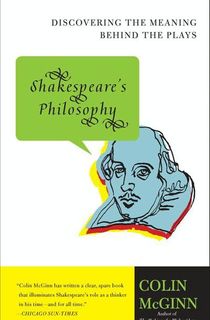
Shakespeare's Philosophy
Professor of Philosophy Colin McGinn explores the playwright’s life and work from an interesting and unusual standpoint, investigating the philosophical teachings to which he would have been exposed and how these may have influenced his writing. Focusing on six of Shakespeare’s most popular plays, McGinn’s thought-provoking book proves particularly fascinating on the topic of the philosophical questions raised in the playwright’s work and what they teach us about the human condition.
The Chicago Sun-Times described Shakespeare’s Philosophy as a “clear, spare book that illuminates Shakespeare’s role as a thinker in his time – and for all time”.
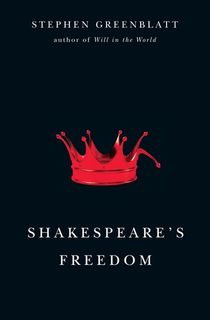
Shakespeare's Freedom
Stephen Greenblatt is regarded as one of America’s foremost literary critics and so makes the perfect guide to understanding Shakespeare’s plays within the wider context of the restrictive 16th-century society in which he lived and worked.
In this short collection of essays, Greenblatt analyses the dramatist’s views on universal themes like beauty, hatred, and freedom of expression through the medium of his plays. In so doing, he highlights not only Shakespeare’s talent for “embracing and subverting the norms of his age” but also the playwright’s “awareness of the human condition in all its complexity” (Financial Times).
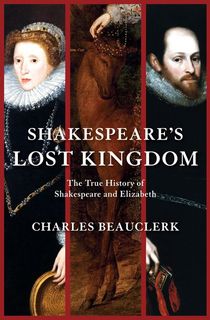
Shakespeare's Lost Kingdom
Despite his worldwide renown, much of Shakespeare’s life remains a mystery even down to the question of the authorship of his plays. Dating back at least two centuries, the Oxfordian theory contests the conventional view of the playwright’s identity as a relatively poorly educated actor from Stratford-Upon-Avon, attributing the plays instead to the well-connected Earl of Oxford, Edward de Vere.
Shakespeare’s Lost Kingdom author, Charles Beauclerk, is himself a distant descendant of de Vere and sets out compelling evidence in support of his ancestor’s claim. His account radically differs from previous proponents of the Oxfordian theory, though, in his controversial claim that de Vere was also the illegitimate son of Queen Elizabeth I. Packed full of intriguing references to historical sources as well as Shakespeare’s own work, this fascinating book is sure to divide opinion.
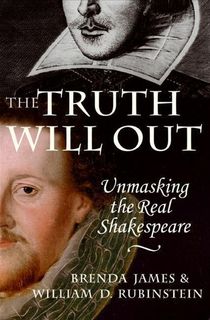
The Truth Will Out
Published in 2005, The Truth Will Out offers a different, yet equally plausible, candidate for the authorship of Shakespeare’s plays. The actor Sir Mark Rylance, former Chairman of the Shakespearean Authorship Trust, praised this “pioneering book…for its discoveries and clear style of expression”.
Brenda James and William D. Rubenstein argue in favor of Elizabethan statesman Sir Henry Neville, whose lifespan (1562-1615) bears a striking resemblance to that of Shakespeare (1564-1616). They compare the two men’s educational backgrounds, positions in society, and personal experiences, providing a comprehensive and intriguing body of evidence to support their claims, particularly in their use of contemporary documents from the age in which the plays were written. Along the way, they also provide a fascinating snapshot into the world of the Elizabethan era.

England in the Age of Shakespeare
Jeremy Black immerses his reader in the social, political and religious history of the Elizabethan period, as seen through the lens of Shakespeare’s plays. Revealing a world quite different from today, this fresh approach offers a fascinating insight into the way in which Shakespeare’s work was perceived by his contemporaries and how it reflected their own day-to-day experiences.
Black also highlights the playwright’s penchant for in-jokes and asides alluding to well-known events and characters of his era, which would have been enjoyed by those first theatregoers but are often lost on modern audiences.
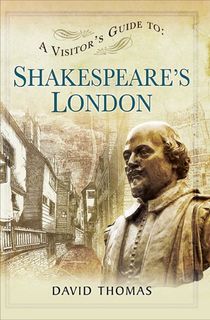
A Visitor's Guide to Shakespeare's London
Published in 2016 to commemorate the 400th anniversary of the playwright’s death, this imaginative visitor’s guide allows the reader to travel back in time and relive the sights and sounds of the late 16th-century London once experienced by Shakespeare.
It is satisfying to discover that although many buildings from the Elizabethan era have long since been demolished, several have miraculously survived to this day. David Thomas provides several specially curated tours for those looking to follow in the Bard’s footsteps, but you don’t need to visit the city in person to enjoy this book. The author’s vibrant take on what it was like to live in Shakespeare’s London also provides plenty of fascinating insights into the city’s social history.
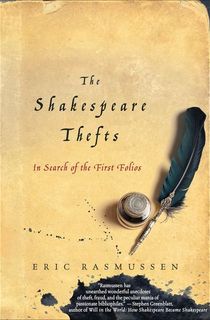
The Shakespeare Thefts
Known as the First Folio, the first edition of Shakespeare’s collected works was published in 1623. It is estimated that only around 160 copies were produced, meaning that the First Folio has become not only one of the world’s most coveted and valuable books but also, inevitably, a target for thieves. In the 20th century alone, around a dozen copies are believed to have been stolen but never relocated.
Shakespearean scholar Eric Rasmussen explores the circumstances surrounding the disappearance of the missing First Folios in The Shakespeare Thefts. Leaving no stone unturned in his investigations, Rasmussen narrates, in gripping detail, the story of his literary detective work which took him around the globe and sometimes into perilous situations. Along the way, he has assembled a collection of humorous anecdotes which offer a unique and quirky perspective on this fascinating topic.

A Year in the Life of William Shakespeare: 1599
James Shapiro’s award-winning biography is unusual in that it focuses on just one single year in Shakespeare’s life, but this allows him the opportunity to produce a gripping and intimate portrait of the dramatist at a pivotal moment in his career. In 1599, Shakespeare wrote four of his most iconic plays—Henry the Fifth, Julius Caesar, As You Like It, and Hamlet—and became one of the main backers behind the Globe Theatre, a groundbreaking project to build a brand-new performance space on the south bank of the River Thames.
Set against the backdrop of the cultural and political events happening that same year, Shapiro’s intensively researched biography provides “an unforgettable illumination of a crucial moment in the life of our greatest writer” (The Observer).
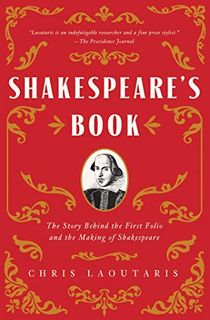
Shakespeare's Book
In the meticulously researched Shakespeare’s Book, Chris Laoutaris uncovers the fascinating tale behind the 1623 publication of the First Folio, without which some of Shakespeare’s best-loved plays may well have been lost to posterity. This groundbreaking history investigates the ambitious project’s chief movers and the considerable legal and personal difficulties they encountered along the way, as well as the extent to which Shakespeare himself may have played a part in its early development prior to his death in 1616.
The Financial Times describes Shakespeare’s Book as “a lively picture of multiple operators scrambling to steal a march on the competition…lavishly detailed”.
This post is sponsored by Open Road Media. Thank you for supporting our partners, who make it possible for The Archive to continue publishing the history stories you love.


